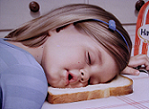Sleep apnea and high altitude?
Sleep apnea and high altitude?
Anybody experience hiking or activities and have more trouble with them at higher altitude (11K). Today went snowshoeing, and had a lot of trouble. Last year I actually got altitude sick, this year I was very conscious of fluid intake and did a little better. I am in in my 60s but healthy and do hiking and so on. I live at 5K.
Wondering if the sleep apnea makes this harder. I am on CPAP but just started.
Wondering if the sleep apnea makes this harder. I am on CPAP but just started.
_________________
| Machine: ResMed AirSense™ 10 AutoSet™ CPAP Machine with HumidAir™ Heated Humidifier |
| Mask: DreamWear Nasal CPAP Mask with Headgear |
Re: Sleep apnea and high altitude?
I live at about 350 ft. elevation and use CPAP. I have made numerous vacation trips to the Rocky Mountain region and have spent up to two weeks at elevations as great as 11,000 ft. with no upset to my sleep routines-or at least no effects that I was aware of. I suppose that individuals response to altitude change may be an individual characteristic and bother some people and not affect others. I certainly felt daytime physical effects such as fatigue and shortness of breath with exertion hiking, but I always slept well.
TheDuke
TheDuke
Re: Sleep apnea and high altitude?
I live at about 0 feet sea level (right on the ocean), but had a nice trip up to Glacier Park a while ago, and then drove up to Banff and Jasper from there. Some of those nights were tent camping at altitude. High enough so the night time temperatures were around freezing in early August. Anyways, no problems, everything just worked. I had brought a hose cover to prevent rainout, since I knew the temperatures would be lower up between Banff and Jasper. So it pays to be prepared, but if you are, you can have a great time and not worry.
_________________
| Machine: ResMed AirSense™ 10 AutoSet™ CPAP Machine with HumidAir™ Heated Humidifier |
| Mask: ResMed AirFit N30 Nasal CPAP Mask with Headgear |
Re: Sleep apnea and high altitude?
It is my understanding that the high altitude effect is not on the apnea per se but on the blood oxygen level.
I live at a low level but have great difficulty keeping my SpO2 above 88% when on a long airline flight. Cabin pressure seems to be set to about 5,000 ft.
Is anyone who camps at above 5,000 feet recording their SpO2 and heart rate to see if anything special is going on at night?
Edit: Here is a link to an interesting study in this area:
http://online.liebertpub.com/doi/pdf/10 ... .2009.1060
I live at a low level but have great difficulty keeping my SpO2 above 88% when on a long airline flight. Cabin pressure seems to be set to about 5,000 ft.
Is anyone who camps at above 5,000 feet recording their SpO2 and heart rate to see if anything special is going on at night?
Edit: Here is a link to an interesting study in this area:
http://online.liebertpub.com/doi/pdf/10 ... .2009.1060
_________________
| Mask: Oracle HC452 Oral CPAP Mask |
| Humidifier: DreamStation Heated Humidifier |
| Additional Comments: EverFlo Q 3.0 Liters O2 PR DSX900 ASV |
Oracle 452 Lessons Learned Updated
DSX900 AutoSV with HC150 extra humidifier and Hibernite heated hose
Settings: EPAP Min-10.0, EPAP Max-17, PS Min-3, PS Max-10, Max Pressure-20, Rate-Auto, Biflex-1.
Sleepyhead and Encore Pro 2.21.
DSX900 AutoSV with HC150 extra humidifier and Hibernite heated hose
Settings: EPAP Min-10.0, EPAP Max-17, PS Min-3, PS Max-10, Max Pressure-20, Rate-Auto, Biflex-1.
Sleepyhead and Encore Pro 2.21.
Re: Sleep apnea and high altitude?
Since I'm not yet treated (just started CPAP) I would guess the question is would a low O2 level during sleep make it harder to deal with a lower O2 blood level while awake? Will treating this make me more able to handle it. This was a day trip. Went up there during the day and I live in Albuquerque where the altitude where I live is 5-6K. (My O2 doesn't drop tremendously but does go under 90% during sleep, not actually for that long but still...)
BTW, I noticed the study was from Denali. I've heard that Denali is one of the roughest mountains in the world for altitude sickness because the altitude gains are so tremendous. I believe for K2 or Everest you are already at a high altitude but obviously gain, but for Denali, you start off near sea level.
BTW, I noticed the study was from Denali. I've heard that Denali is one of the roughest mountains in the world for altitude sickness because the altitude gains are so tremendous. I believe for K2 or Everest you are already at a high altitude but obviously gain, but for Denali, you start off near sea level.
_________________
| Machine: ResMed AirSense™ 10 AutoSet™ CPAP Machine with HumidAir™ Heated Humidifier |
| Mask: DreamWear Nasal CPAP Mask with Headgear |
Re: Sleep apnea and high altitude?
Sleep apnea and low 02 during sleep has no bearing on daytime problems. The reason for 02 drop during sleep is because you stop breathing when you have untreated SA and don't use your CPAP. You don't stop breathing when you are awake.jonny515 wrote:Since I'm not yet treated (just started CPAP) I would guess the question is would a low O2 level during sleep make it harder to deal with a lower O2 blood level while awake? Will treating this make me more able to handle it. This was a day trip. Went up there during the day and I live in Albuquerque where the altitude where I live is 5-6K. (My O2 doesn't drop tremendously but does go under 90% during sleep, not actually for that long but still...)
BTW, I noticed the study was from Denali. I've heard that Denali is one of the roughest mountains in the world for altitude sickness because the altitude gains are so tremendous. I believe for K2 or Everest you are already at a high altitude but obviously gain, but for Denali, you start off near sea level.
_________________
| Machine: ResMed AirSense™ 10 AutoSet™ CPAP Machine with HumidAir™ Heated Humidifier |
| Mask: Fisher & Paykel Vitera Full Face Mask with Headgear (S, M, or L Cushion) |
| Additional Comments: Back up is S9 Autoset...... |
Re: Sleep apnea and high altitude?
Yes, I guess what I am wondering is if low O2 during sleep makes your body (for lack of a better way of putting it) less resilient to low O2 during wake?
LSAT wrote:
Sleep apnea and low 02 during sleep has no bearing on daytime problems. The reason for 02 drop during sleep is because you stop breathing when you have untreated SA and don't use your CPAP. You don't stop breathing when you are awake.
_________________
| Machine: ResMed AirSense™ 10 AutoSet™ CPAP Machine with HumidAir™ Heated Humidifier |
| Mask: DreamWear Nasal CPAP Mask with Headgear |
- BlackSpinner
- Posts: 9742
- Joined: Sat Apr 25, 2009 5:44 pm
- Location: Edmonton Alberta
- Contact:
Re: Sleep apnea and high altitude?
Your ability to handle high altitudes depends on your genetic make up.
Some people with untreated OSA have an easier time because their bodies are used to low O2 (and you can see it in their blood work) Others are so run down from their OSA that any increase in altitude will basically make them feel like crap.
Some people with untreated OSA have an easier time because their bodies are used to low O2 (and you can see it in their blood work) Others are so run down from their OSA that any increase in altitude will basically make them feel like crap.
_________________
| Machine: PR System One REMStar 60 Series Auto CPAP Machine |
| Additional Comments: Quatro mask for colds & flus S8 elite for back up |
71. The lame can ride on horseback, the one-handed drive cattle. The deaf, fight and be useful. To be blind is better than to be burnt on the pyre. No one gets good from a corpse. The Havamal
Re: Sleep apnea and high altitude?
Before my sleep apnea was treated, I visited several high-altitude (8,00 plus) locations and flew (slept on) a lot of long-distance (10-20 hour) flights. Headaches killed me. When I learned about my apnea, I understood why - my overnight O2 levels must have been frightfully low!
As someone else here said, daytime levels are what they are, but at least you are trying to breath deeply and frequently. At night you teeter on the brink of catastrophe.
As someone else here said, daytime levels are what they are, but at least you are trying to breath deeply and frequently. At night you teeter on the brink of catastrophe.
- chunkyfrog
- Posts: 34545
- Joined: Mon Jul 12, 2010 5:10 pm
- Location: Nowhere special--this year in particular.
Re: Sleep apnea and high altitude?
Genetics have a lot to do with it.
They found out that some Sherpas have tolerances that cannot be achieved by others, even with years of training.
They found out that some Sherpas have tolerances that cannot be achieved by others, even with years of training.
_________________
| Mask: AirFit™ P10 For Her Nasal Pillow CPAP Mask with Headgear |
| Additional Comments: Airsense 10 Autoset for Her |
Re: Sleep apnea and high altitude?
I also experienced significant migraines on long flights (12-15 hr) prior to CPAP. Now I also take magnesium prior to flying.dvejr wrote:Before my sleep apnea was treated, I visited several high-altitude (8,00 plus) locations and flew (slept on) a lot of long-distance (10-20 hour) flights. Headaches killed me. When I learned about my apnea, I understood why - my overnight O2 levels must have been frightfully low!
As someone else here said, daytime levels are what they are, but at least you are trying to breath deeply and frequently. At night you teeter on the brink of catastrophe.
_________________
| Machine: DreamStation Go Auto CPAP Machine |
| Mask: AirFit™ P10 Nasal Pillow CPAP Mask with Headgear |
| Additional Comments: Oscar |
Re: Sleep apnea and high altitude?
My 02 is in the lower range when I'm awake while sitting or standing and while on CPAP around 89-93 at 1500 feet. The sleep doctor thinks I have another issue ill be going to a pulmonologist. The strange thing is when I exercise my o2 goes up to 95-97 range the same thing happens at 9500 feet. If your 02 is low while awake I would get it checked out rule out any other lung issues.
Re: Sleep apnea and high altitude?
Mild COPD does that for me. Good you are going to a pulmonologist to check.kell420 wrote:My 02 is in the lower range when I'm awake while sitting or standing and while on CPAP around 89-93 at 1500 feet. The sleep doctor thinks I have another issue ill be going to a pulmonologist. The strange thing is when I exercise my o2 goes up to 95-97 range the same thing happens at 9500 feet. If your 02 is low while awake I would get it checked out rule out any other lung issues.
Mine stemmed from lung damage from severe influenza that put me in the hospital.
_________________
| Mask: Oracle HC452 Oral CPAP Mask |
| Humidifier: DreamStation Heated Humidifier |
| Additional Comments: EverFlo Q 3.0 Liters O2 PR DSX900 ASV |
Oracle 452 Lessons Learned Updated
DSX900 AutoSV with HC150 extra humidifier and Hibernite heated hose
Settings: EPAP Min-10.0, EPAP Max-17, PS Min-3, PS Max-10, Max Pressure-20, Rate-Auto, Biflex-1.
Sleepyhead and Encore Pro 2.21.
DSX900 AutoSV with HC150 extra humidifier and Hibernite heated hose
Settings: EPAP Min-10.0, EPAP Max-17, PS Min-3, PS Max-10, Max Pressure-20, Rate-Auto, Biflex-1.
Sleepyhead and Encore Pro 2.21.
Re: Sleep apnea and high altitude?
Sorry about the COPD. No, I have normal O2 levels while awake. I did read that snowshoeing (which is what I was doing at 11K) is VERY effective exercise, uses more calories than cross country skiing or running. So I was just probably not in that good condition. If I had hiked probably would have been less bothered.
_________________
| Machine: ResMed AirSense™ 10 AutoSet™ CPAP Machine with HumidAir™ Heated Humidifier |
| Mask: DreamWear Nasal CPAP Mask with Headgear |
Re: Sleep apnea and high altitude?
For years, I would have headaches every day while we were at altitude, till about a week had gone by. Once I got on CPAP, no more headaches.
_________________
| Mask: Mirage Activa™ LT Nasal CPAP Mask with Headgear |
| Additional Comments: pressure 10-12 |















